
Israel's criticism of Irish president 'unhelpful'
The Israeli ambassador has accused the Irish president of making misinformed comments on the Israel-Gaza war.
1970-01-01 08:00
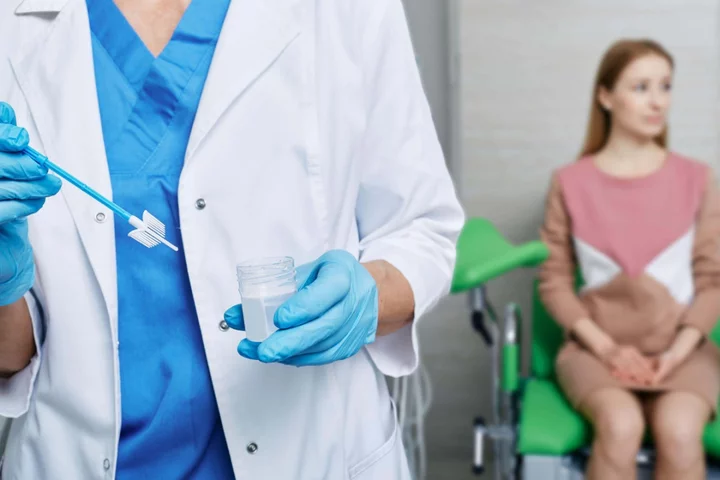
What you need to know about new research into treating cervical cancer
Using existing drugs to treat cervical cancer before standard treatment could lead to a 35% reduction in the risk of relapse or death, a new study suggests. Researchers from the UCL Cancer Institute and UCLH looked into whether a short course of induction chemotherapy (IC), where a drug is used to destroy as many cancer cells as possible, before chemoradiation (CRT), could help with this. Here’s everything you need to know about the findings… What is cervical cancer? According to the NHS website, cervical cancer is a type of cancer found anywhere near the cervix – the opening between the vagina and the womb (uterus), which is also known as the neck of the womb. Most cervical cancers grow very slowly and are caused by an infection from specific types of human papillomavirus (HPV) and mostly affect women under the age of 45. According to Jo’s Cervical Cancer Trust, symptoms include vaginal bleeding that is unusual to you, changes to vaginal discharge, discomfort during sex and pain in your lower back or pelvis. Changes to cells can be spotted by a cervical screening, and then treated before they turn into cancer. There are around 3,200 new cases every year in the UK, with the five-year survival rate being around 70%, according to Cancer Research UK. CRT has been the standard treatment for cervical cancer patients since 1999, but even though there have been overall significant developments in radiation therapy techniques, up to 30% of people experience their cancer coming back. What did the research involve? Over a 10-year period, 500 patients who had been diagnosed with cervical cancer – that was large enough to see without a microscope but hadn’t spread to other parts of the body – took part in the Interlace trial at hospitals in the UK, Mexico, India, Italy and Brazil. Researchers looked into whether a short course of IC before CRT could reduce rates of relapse and death. What results were found? After five years, researchers discovered that 80% of the people who received a combination of chemotherapy and radiotherapy were alive, whilst 73% had not seen their cancer return or spread. A major benefit, according to researchers, is that it can be incorporated into standard of care treatment relatively quickly, because cheap, accessible and already-approved ingredients such as carboplatin and paclitaxel are needed for IC. “Our trial shows that this short course of additional chemotherapy delivered immediately before the standard CRT can reduce the risk of the cancer returning or death by 35%,” said Dr Mary McCormack, lead investigator of the trial from UCL Cancer Institute and UCLH. “This is the biggest improvement in outcome in this disease in over 20 years. “I’m incredibly proud of all the patients who participated in the trial; their contribution has allowed us to gather the evidence needed to improve treatment of cervical cancer patients everywhere. “We couldn’t have done this without the generous support of Cancer Research UK.” Why is the research important? Dr Iain Foulkes, executive director of research and innovation at Cancer Research UK, said: “Timing is everything when you’re treating cancer. The simple act of adding induction chemotherapy to the start of chemoradiation treatment for cervical cancer has delivered remarkable results in this trial. “A growing body of evidence is showing the value of additional rounds of chemotherapy before other treatments like surgery and radiotherapy in several other cancers. “Not only can it reduce the chances of cancer coming back, it can be delivered quickly using drugs already available worldwide. “We’re excited for the improvements this trial could bring to cervical cancer treatment and hope short courses of induction chemotherapy will be rapidly adopted in the clinic.”
1970-01-01 08:00
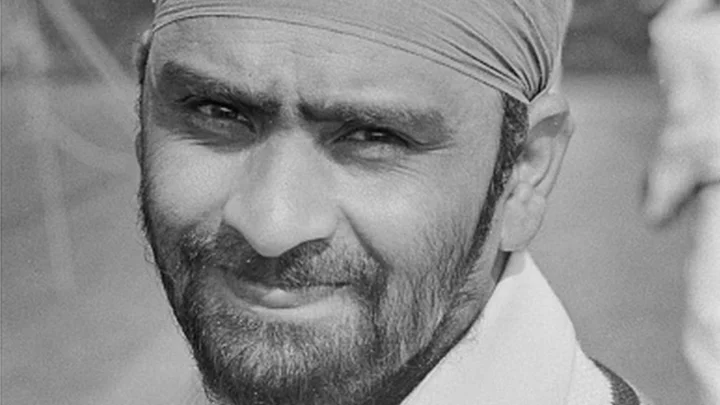
Bishan Singh Bedi: Indian cricket legend dies aged 77
One of the world's finest spin bowlers, Bishan Bedi took 1,560 first-class wickets, the highest by an Indian.
1970-01-01 08:00
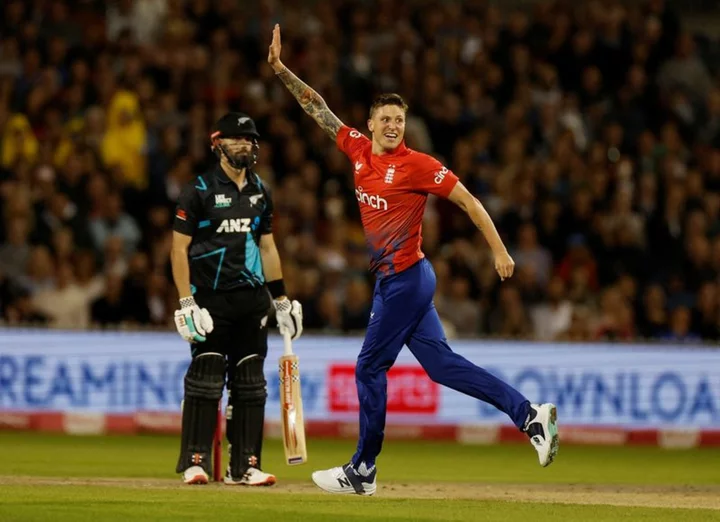
Cricket-Carse to replace injured Topley as England aim for World Cup turnaround
Pacer Brydon Carse will replace injured Reece Topley in England's World Cup squad, the ICC announced on Monday.
1970-01-01 08:00
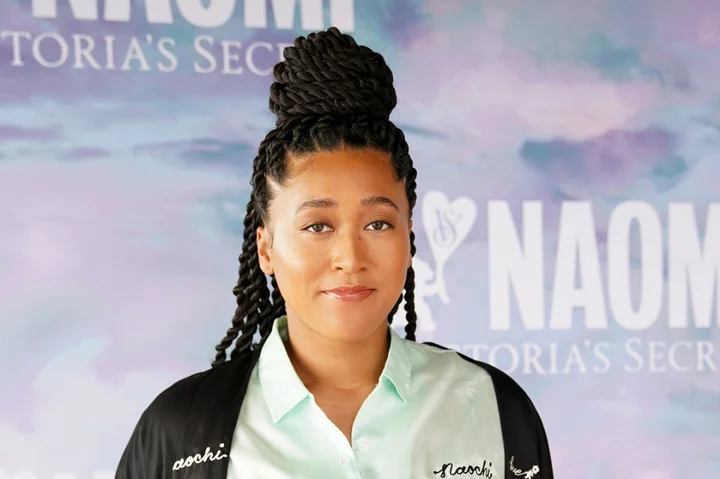
Naomi Osaka opens up about fighting thoughts that she ‘won’t be a good mom’
Naomi Osaka has reflected on battling self-doubt and difficult thoughts as a new mother. The four-time Grand Slam tennis champion gave birth to her first child, a daughter named Shai, in July 2023. She shares Shai with her partner, rapper Cordae. On Sunday (22 October), Osaka shared some insights into her personal life with her fans to mark turning 26 earlier in the week. In an extended post on X, formerly Twitter, the Japanese athlete wrote about taking stock of her life so far, and wondering whether or not she’s taken the “correct path”. “I often try to retrace my steps to figure out how did I end up here,” she explained. “I know I say this often but I truly still feel like that kid playing on public courts in Queens, NY. “Randomly I wonder if I’m doing OK, is there a correct path to take in life or have I veered off onto the scenic route for a little bit? However, I’ve now come into the mindset that I can only keep moving forward and everything that will be, will be.” Osaka then shared her specific feelings of worry about her capabilities as a parent. “Something I had to conquer recently is fighting the thought that I won’t be a good mom,” she wrote. “So many doubts raced through my head I had to swat them away like mosquitoes. “Looking into Shai’s eyes and holding her I always think, ‘Wow this little person depends on me so much, I have to do better.’ It’s such a strange feeling watching your kid grow, you blink and they’re double the size in a few months. “Gratefulness reminds me to breathe and take in the little things (and the big ones).” Osaka ended her post by expressing her gratitude for having “another year” and for the people who support her. Osaka’s last competitive match was at the Toray Pan Pacific Open in September 2022, before she withdrew from the tournament due to abdominal pain. She announced her pregnancy in January 2023 shortly after stating that she wouldn’t be competing in the Australian Open later that month. Last month, Osaka spoke about her year away from playing tennis and mentioned how other female tennis stars’ longevity has influenced her desire to keep competing. “The whole process, it felt long and short at the same time,” she told the American sports news channel ESPN. “When I stepped away, it was Tokyo, that was the last tournament I played. I just remember watching the Australian Open and being very devastated, because I’ve never missed an Australian Open. “When I was watching Serena and Venus [Williams], I was thinking, ‘Ah, I probably no way will ever play at their age’, but sitting here, I’m like, ‘You know what? I might do that actually.’” Read More ‘Truly heartbroken’ Rebecca Adlington reveals late miscarriage Should we stop putting the clocks back? What the experts think ‘I lost over a stone on Ozempic, but now it’s run out what am I to do?’ ‘Truly heartbroken’ Rebecca Adlington reveals late miscarriage Should we stop putting the clocks back? What the experts think ‘I lost over a stone on Ozempic, but now it’s run out what am I to do?’
1970-01-01 08:00

South China Sea: Why the Philippines and China are on a collision course
A new sense of urgency is pushing Manila and Beijing to greater assertiveness in the South China Sea.
1970-01-01 08:00
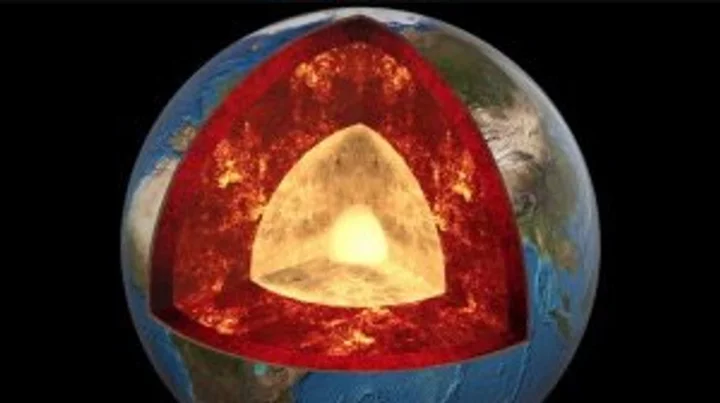
Scientists baffled after discovering that the Earth's core is 'leaking'
The name “core” suggests something hard and fixed but, it turns out, the Earth’s core is leaking. That is, at least, according to a team of top scientists, who drew the conclusion after analysing 62-million-old Arctic rocks. Geochemists from the California Institute of Technology and Woods Hole Oceanographic Institution detected record concentrations of helium 3 (3He) and helium 4 (4He) isotopes in the rocks, which suggest a slow trickle up from the very heart of our planet. They believe there could be reserves of the elusive gas buried some 2,900km underground. Helium is a surprisingly rare element on the Earth’s surface and experts have yet to establish just how much of it remains trapped deep beneath our feet. However, the new discovery has provided them with a fresh insight into the most mysterious region of our world. Understanding the presence of these helium isotopes could illuminate key processes in the core, such as how the Earth generated its life-protecting magnetic field. Most helium in the universe dates back to the Big Bang which occurred 13.8 billion years ago. The Earth swallowed up some of this as an infant planet, but mostly burped it all away during its 4.6 billion-year-long formation, as Science Alert reports. This means that any traces of helium found in volcanic rock – such as the samples unearthed in the Arctic – are believed to come either from pockets of mantle that are yet to release their helium, or from a vast, slow-leaking reserve. Basaltic lavas on Canada's Baffin Island contain some of the world's highest ratios of 3He to 4He, which geologists believe indicates that the gas's presence is not to do with the atmosphere, but rather the sign of deeper terrestrial origins. Several years ago, geochemist Forrest Horton uncovered helium isotope ratios of up to 50 times that of atmospheric levels in samples collected from Baffin's lava fields. This unusual concentration was also detected in lavas collected from Iceland. Horton and his team wondered if the helium in both samples may have derived from an ancient reservoir deep within the crust. And, it seems, their hunch may have been right. Their latest analysis – including specimens of the mineral olivine taken from dozens of sites across Baffin and surrounding islands – has delivered the highest ratio of 3He to 4He ever recorded in volcanic rock – measuring nearly 70 times anything previously detected in the atmosphere, as Science Alert notes. The team also considered ratios of other isotopes in order to rule out factors that may have altered the helium’s composition post-volcanic eruption, and found that the ratio of isotopes in the gas neon also matched the conditions present during the Earth’s formation. Despite advances in geology, the Earth’s core remains a great mystery, given that we have no way of directly exploring its core. The deepest hole humans have ever dug – branded the "entrance to hell" – extended an impressive 12,263m (40,230ft) down, but even that doesn’t come close to breaking through the crust to the layers beneath. Still, thanks to techniques like seismic tomography – which analyses how waves of energy travel through different materials during earthquakes – we’ve been able to map out the world’s interior. And carefully crafted simulations, based on the thermodynamics and pressures of our planet’s innards, suggest reserves of noble gases (like helium and neon) trapped in the core could have been protected as the Earth grew before seeping into the surrounding mantle over time. If the core is leaking, this could teach us a thing or two about how planets like ours form and how life, eventually, emerges. Sign up for our free Indy100 weekly newsletter Have your say in our news democracy. Click the upvote icon at the top of the page to help raise this article through the indy100 rankings
1970-01-01 08:00

'Less is more': Matthew Vaughn urges superhero studios not to exhaust fans
Matthew Vaughn has urged movie studios to prioritise quality over quantity in the superhero genre to prevent audience "fatigue".
1970-01-01 08:00

Rebecca Adlington says she’s ‘truly heartbroken’ after late miscarriage
Rebecca Adlington has said she’s “truly heartbroken” as the British swimmer announced she had a miscarriage at 20 weeks pregnant. Adlington, 34, said she went for her 20-week scan earlier this week and was informed her baby had no heartbeat, adding she and husband Andy Parsons, 31, “will forever love and remember” their daughter. She wrote on Instagram: “I don’t really have the words right now but unfortunately we went for our 20-week scan this week and they discovered no heart beat [sic].” Adlington added that she gave birth to the baby – who the couple named Harper – on Friday (20 October) and “we held her, and had time with her”. The two-time Olympic gold medallist thanked the staff at the Wythenshaw hospital in Manchester for their “incredible” kindness and care, and Parsons for his “selfless support, love, and help”. “I don’t have the strength or words right now and don’t feel ready to share this news,” Adlington continued. “However, I can’t pretend to be okay or fake a smile. I can’t have people ask me how pregnancy is or when I am due as I still look pregnant. I don’t have the strength to tell this news individually.” The former I’m a Celebrity contestant announced she was pregnant on 1 October, sharing a photograph of her family taken at Disneyland Paris. Former track athletes Dame Jessica Ennis-Hill and Greg Rutherford, ex-hockey player Sam Quek, former swim champion Adam Peaty, and presenters Angellica Bell and Helen Skelton shared messages of support in the comments section of Adlington’s Instagram post. Ennis-Hill wrote: “Oh Becky I’m sending you and your family so much love. I’m so sorry xxxx.” Rutherford said: “Sending love to you. So sorry to read this Becky xx.” Quek also wrote: “Becky, I know no words will ease the pain… my entire heart is with you all.” Peaty’s message read: “I’m so sorry to hear this, my prayers are with you all” alongside a heart and praying hand emoji. Adlington previously revealed she had a miscarriage 12 weeks into her pregnancy last August, sharing the news on Instagram at the time. The mother-of-two wrote: “It’s such a devastating time but important in times like these we remember we aren’t alone and have so much support. “Long way to go but I’m in the right place,” she added. “Once I’m able to leave hospital I’m extremely grateful I get to go home and give my 2 little ones the best hugs!” Adlington, who has also appeared on Celebrity MasterChef, shares one son, Albie, two, with Parsons. She also has an eight-year-old daughter, Summer, from her first marriage to swimmer and personal trainer Harry Needs. You can contact the Miscarriage Association helpline on 01924 200799 or email the charity at info@miscarriageassociation.org.uk. The helpline is open from 9am to 4pm Monday to Friday. For more information, help and support regarding pregnancy loss, you can contact Tommy’s on 0800 0147 800. To contact Petals to enquire about the charity’s counselling services, you can call 0300 688 0068 or email counselling@petalscharity.org. Read More Should we stop putting the clocks back? What the experts think ‘I lost over a stone on Ozempic, but now it’s run out what am I to do?’ Consistent lack of sleep may increase risk of future depressive symptoms – study Should we stop putting the clocks back? What the experts think ‘I lost over a stone on Ozempic, but now it’s run out what am I to do?’ Consistent lack of sleep may increase risk of future depressive symptoms – study
1970-01-01 08:00

American Jews and Palestinians face fear and hatred
As the war between Israel and Hamas intensifies, so have attacks against both communities in the US.
1970-01-01 08:00

Jonathan Allen’s frustrations after Commanders loss should perk up trade suitors
Washington Commanders defensive tackle Jonathan Allen voiced his frustration with the team after their 14-7 loss to the New York Giants on Sunday.
1970-01-01 08:00
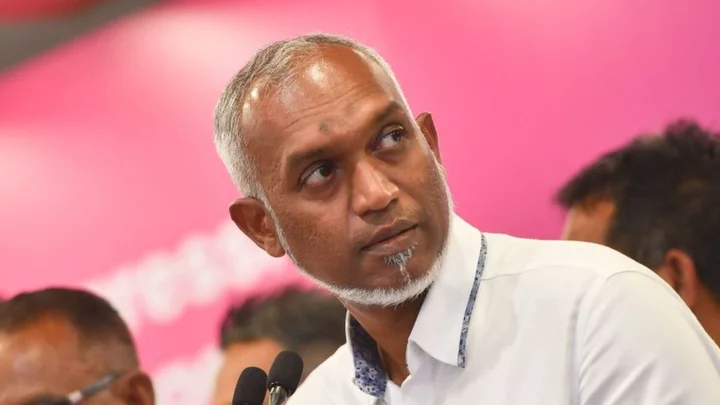
Mohamed Muizzu: The Maldives' new president wants India out
In an exclusive interview, Dr Mohamed Muizzu tells the BBC he wants all Indian troops removed.
1970-01-01 08:00
